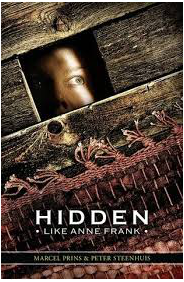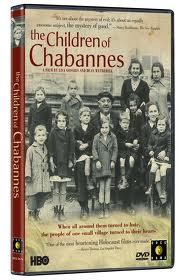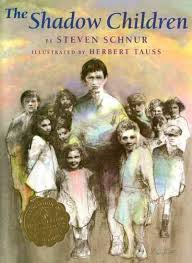
Hidden Like Anne Frank make it evident that hiding children away was more common than some of us might have imagined. This book, by Netherlanders Marcel Prinz and Peter Henk and translated into English by Laura Watkinson, allows 14 people to pass on their experiences as Jewish children in the Netherlands during World War II. Now adults, each narrator recounts being moved from house to house and city to city. Some were kept by family members and relatives. Others, by complete strangers. They endured boredom and terror, hunger and cramped quarters. Some were just three or four years old. Others were teenagers. But they survived because of a secret network of brave people who were determined to protect them.

France was a divided nation during World War II. After France surrendered to Germans on June 24, 1940, three fifths of France, including Northern France and the entire French Atlantic Coast, was occupied by the German army.
Henri Philippe Pétain, a World War I General who had become a national hero, helped form a goverment commonly known as Vichy France in the remaining two fifths of French territory which was called the Southern Zone.
The senior leaders of the Vichy goverment, in the hopes of preserving a modicum of French sovereignty, turned a blind eye to the plunder of French resources and the sending of French forced labor to Nazi Germany. They also allowed and sometimes aided anti-semite parties in the concentration and persecution of Jews, particularly those of foreign citizenship. Vichy France sent 76,000 Jews to death camps. 11,000 of them were children.
Not all Frenchmen agreed with the anti-semite policies of the Vichy regime or their Nazi allies. The Children of Chabannes tells the story of Felix Chevrier, who housed Jewish children, many of them German or Polish by birth, in Chateau Chabannes, his school in Chabannes, Creuse. In a series of interviews, these children, now adults, speak about how Chevrier integrated them into classes with the local children. They believe that the rigorous athletic programs he developed were intended to strengthen them for the physical and mental hardships that they would face if ever sent to Drancy, the closest Jewish Concentration Camp, or to Germany.
When the Germans occupied the Southern Zone in November 1942, the Chateau began dispersing children to protect them from round-up. When the round-ups came, Chevrier was able to stall and obfuscate records. His deceit and planning saved the lives of hundreds of children.

As in the Netherlands and elsewhere, not everyone agreed with this policy. Many Frenchmen, including the fictional ones in my novel, hid their Jewish neighbors or helped them establish false identities or helped smuggle them out of the country. It is estimated that three-quarters of France's Jewish population survived the war because of the efforts of others.

Steven Schnur's The Shadow Children tells the fictional story of Etienne, an eleven year old boy who visits his grandfather during post WWII in the French village of Mount Brulant.
When Etienne sees the ghosts of hundreds of starving, emaciated, raggedy, forlorn children hiding in the woods, he asks his grandfather and other adults about them. Eventually he learns the sad, tragic, terrible truth: Jewish children who were sent into the country to seek refuge arrived in Mount Brulant, where the people helped them for a time. Yet, when the Nazis hunted the children down, the townspeople allowed the Nazis to herd them into trains and ship them to concentration camps.
The true focus of the story in neither Etienne nor the children, but the grief and guilt of the townspeople, who buckled under the threats of the the Nazis. While this story may be fiction, many Frenchmen feel grief and guilt when recounting this dark period in their history.

